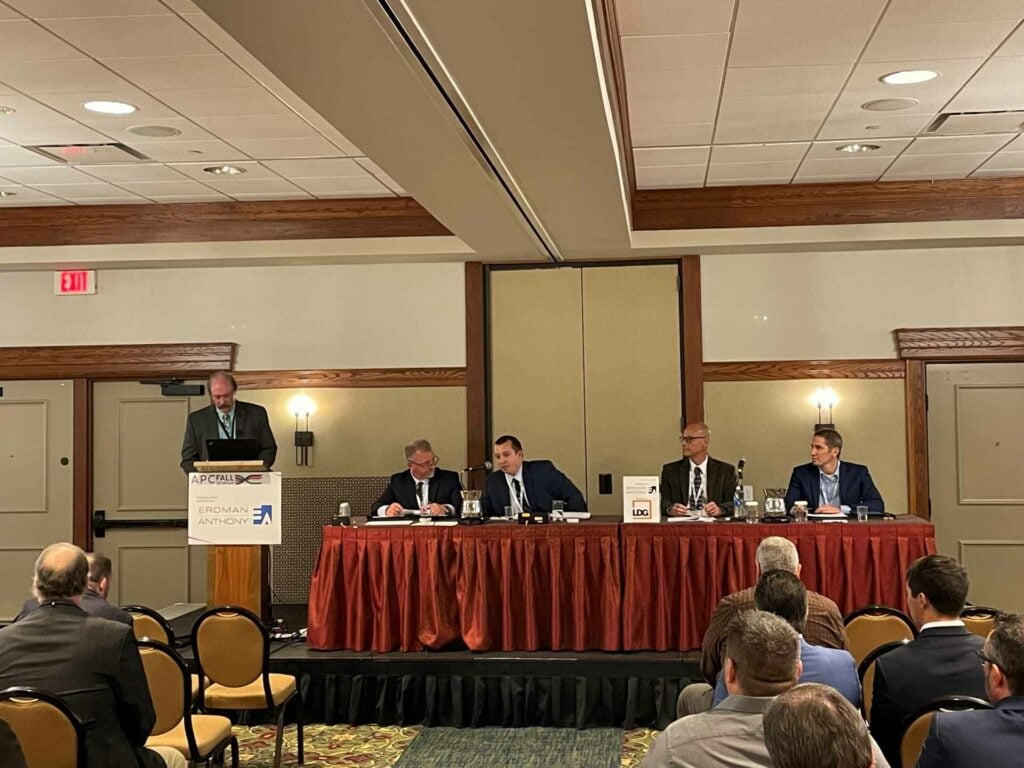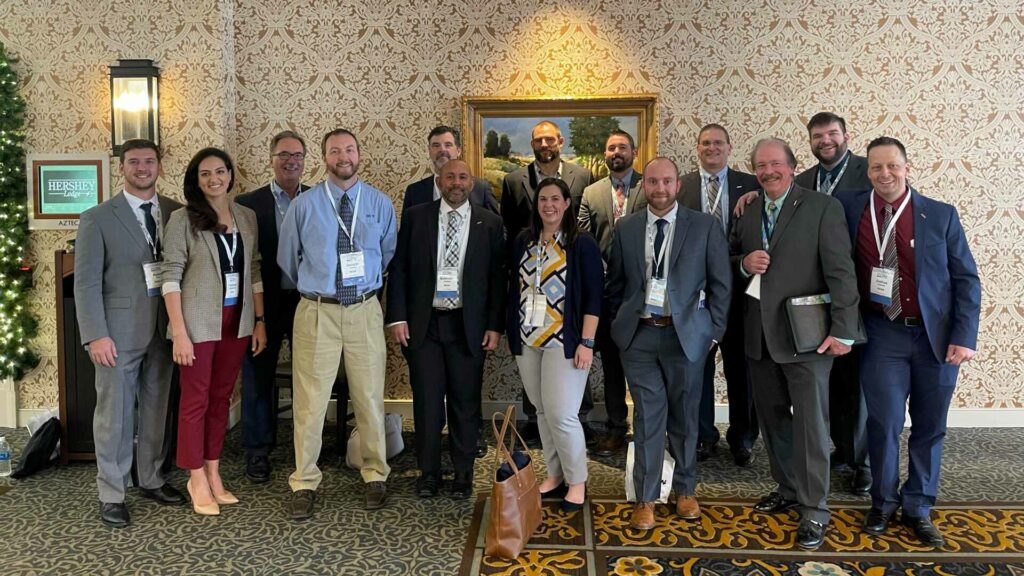Show Notes
Senior Project Delivery Leader Jeff Obrecht PG, CPG recently facilitated a panel discussion with experts from the Pennsylvania Department of Transportation (PennDOT), the Pennsylvania Turnpike Commission, and American Council of Engineering Companies of Pennsylvania at the Associated Pennsylvania Constructors (APC) Fall Seminar.
The panel covered the group’s recommendations for the management of fill in a variety of civil construction import, export, and reuse conditions. It was a result of an ACEC/APC total Quality Initiative workgroup that developed recommended process improvements in the complying with Pennsylvania’s Management of Fill policy during design and construction of transportation improvement projects.
We sat down with Obrecht for more insight into the importance of regulated fill, the best practices that were developed, and what he learned from his time co-chairing the Quality Initiative workgroup.
What is regulated fill and why is it important for the construction of transportation improvement projects?
Transportation projects generally involve the excavation and grading of large volumes of soil. Soil that is unaffected by the release of a petroleum or regulated substance is classified as “clean fill.” Depending on the concentrations of petroleum constituents or regulated substances, soil that is not clean fill is classified as a residual waste or sometimes a hazardous waste. In Pennsylvania, there is a sub-category of residual waste soil termed “regulated fill” as it contains lower petroleum or regulated substance concentrations, and it can be beneficially used in non-residential land use construction grading. While we can generally state that linear transportation projects are non-residential, the interplay of soil generation, reuse within the project limits, and export of fill has multiple considerations in a transportation project as the use, beneficial reuse, and/or export of fill must consider the sequence of construction and soil generation/need, classification as clean or regulated fill, the ability to stage or stockpile fill with in the project limits, the need for temporary construction easements, post-construction land use, and stormwater management.
Senior Project Delivery Leader Jeff Obrecht, PG, CPG participates at a panel discussion at the 2022 Associated Pennsylvania Constructors (APC) Fall Seminar in Hershey, Pennsylvania
How did you develop these best practices for fill management?
Over my 30 years working with various state Departments of Transportation on projects, I have observed too many change orders related to soil management and these change orders can result in millions of dollars of extra funding needs. Sometimes, these change orders are because the insufficient environmental due diligence (EDD) was performed during design. Sometimes, the change orders result from misunderstood soil management specifications by the contractor. But more frequently, it results from a combination of poor understanding of governing regulations on soil management.
If I asked an engineer if a project was net balance in soil, they would look at soil generation volume and soil use, and they might say ‘yes.’ But if I account for linear construction, look at the actual sequence where an embankment must be built early to settle – well before excavation of stormwater basins, the contractor has to import soil for the embankment, then export the soil from that basin. If that stormwater basin excavation generated contaminated soil – regulated fill that could be used in construction, but now must be landfilled as a residual waste.
The bottom line is I believe there was room for better communications, partnering, and sharing of information.
What were the goals of the ACEC/APC total Quality Initiative workgroup and the panel discussion?
I was asked by ACEC and the Associated Pennsylvania Constructors (APC) to co-chair a Total Quality Initiative subcommittee to investigate why soil management change orders result and what can be done to improve the process. The committee had representatives from PennDOT, the PA Turnpike, several contractors, and more represented. What became apparent was there was room for improvement – sharing of information and intent, improving construction specifications to enable regulatory compliance, establishing responsibilities, and improving written communications.
Collectively we came up with recommended practices that worked under different scenarios – no fill export, fill import, and balanced soil – then layered in the regulatory requirements of clean fil, regulated fill, and a third category – reclamation fill. These process improvements included better information sharing by the owners, and improved communications by the contractor.
The committee members are highly encouraged by the outcome, and we are already seeing by the PA Turnpike and PennDOT implementing some of the recommendations.
What did you learn during your time as co-chair?
Perspectives. People learn differently – some must touch something to learn, others must hear it, others read it, some require repetition of more than one learning method.
There is also middle ground in most disagreements, there can be mutual sharing of risks. Success can be a compromise!
Jeff Obrecht, who leads RK&K’s environmental, health and safety services, brings extensive technical and first-hand environmental engineering, due diligence, compliance, and construction waste management expertise to RK&K’s transportation clients. Jeff is known for his ability to develop win-win waste management and contaminated materials beneficial reuse strategies and building consensus among stakeholders. Since 1990, Jeff has collaborated with state DOTs and applied his geologic, geophysical and geotechnical expertise to bring practical solutions to support the planning and design of highways, bridges, ITS and signal improvements; strengthened facility and operational environmental regulatory compliance; and supported construction personnel in beneficial reuse and waste management decisions. He currently leads the RK&K team responsible for the implementation of PennDOT strategic recycling program (SRP) that seeks to identify and substitute recycled materials into transportation improvement projects where an engineering or cost advantage is recognized.


